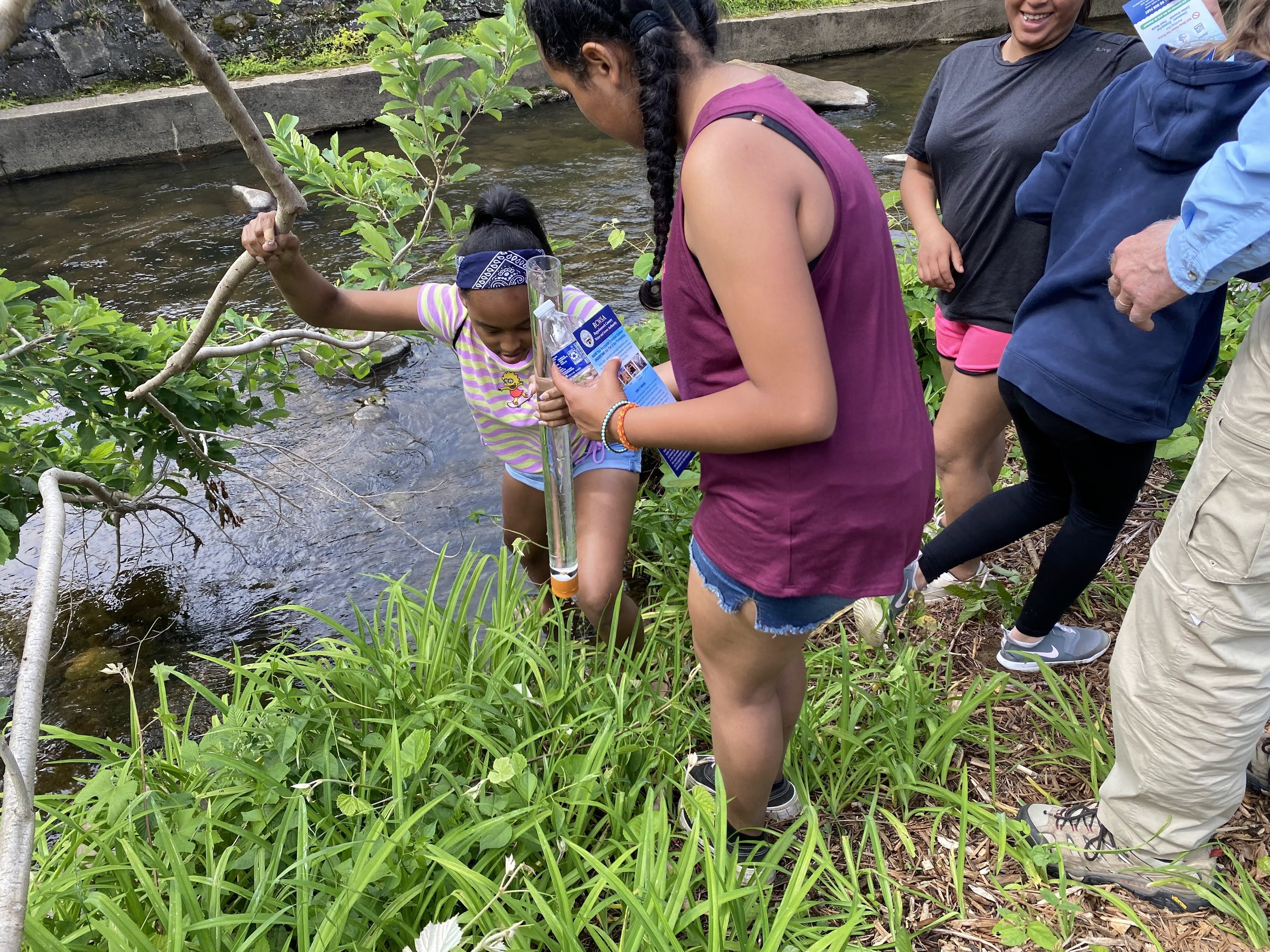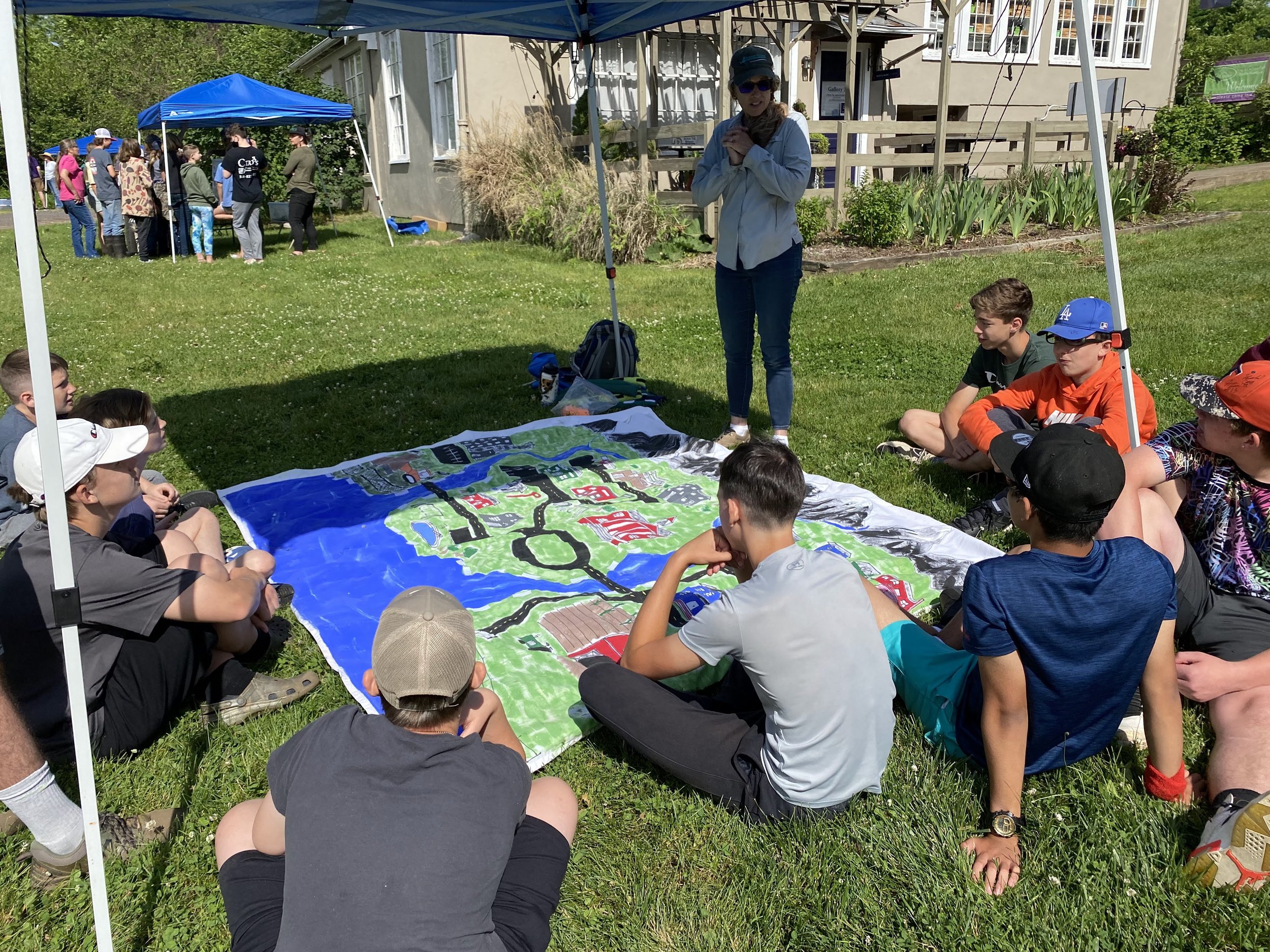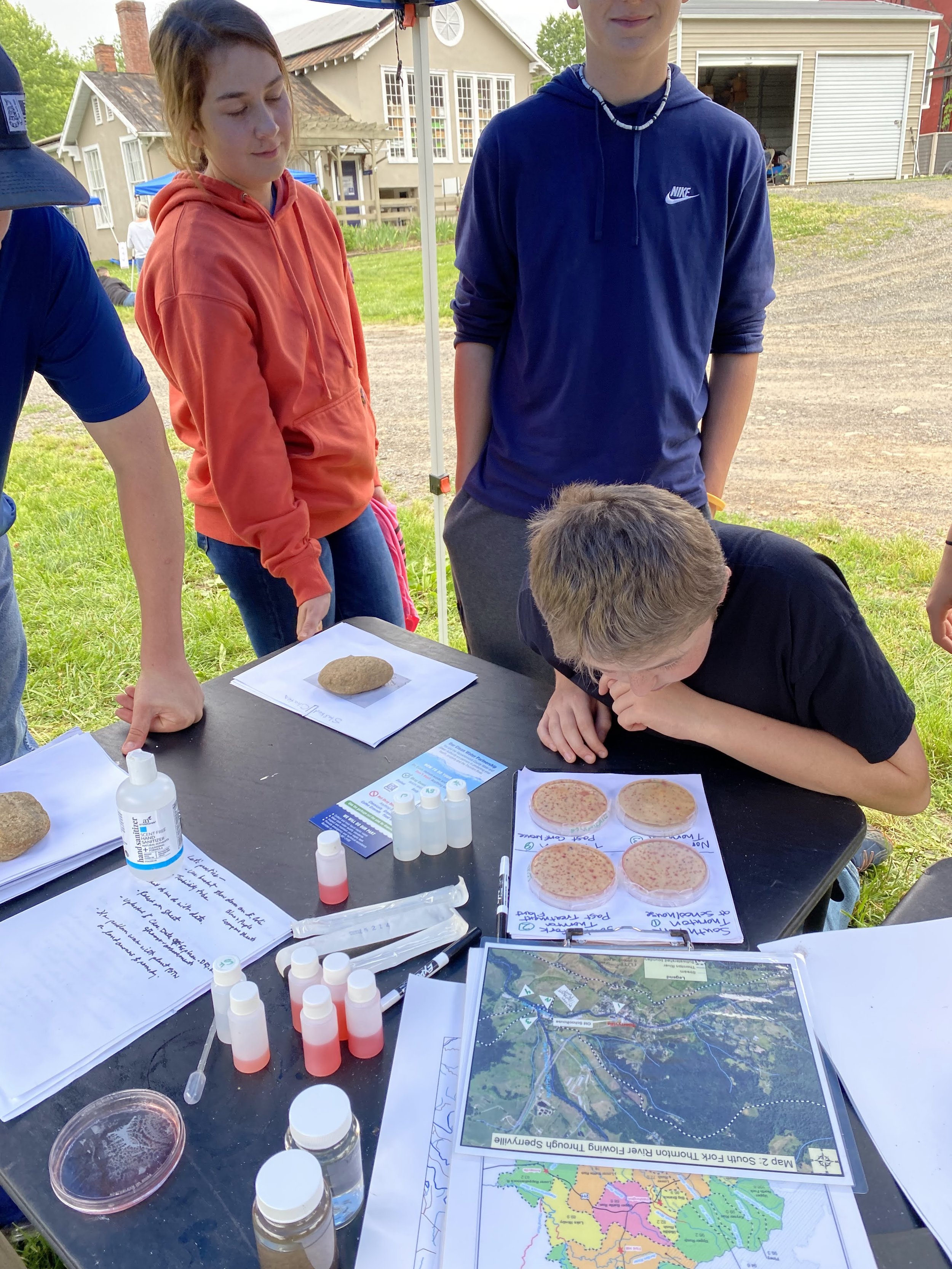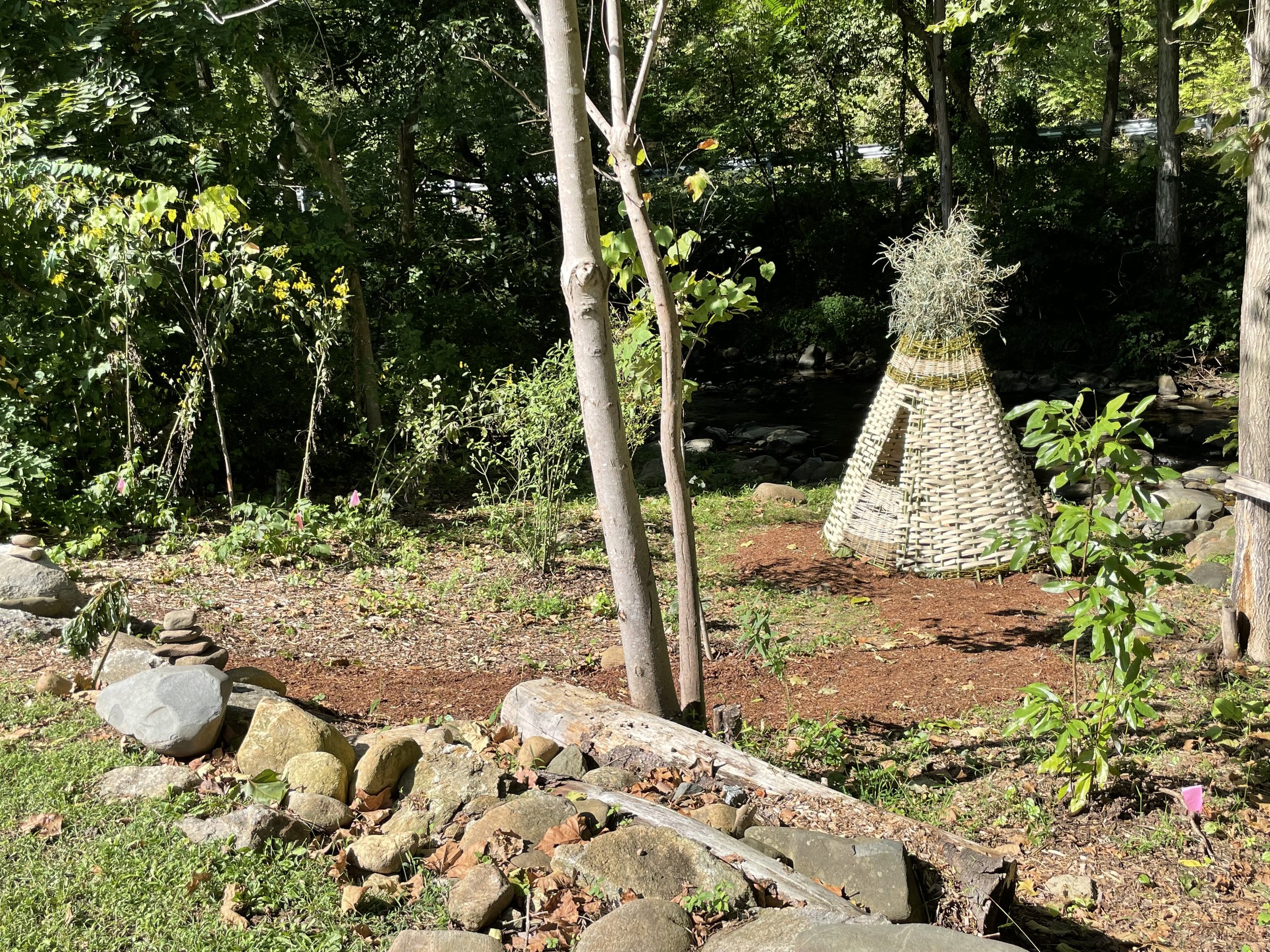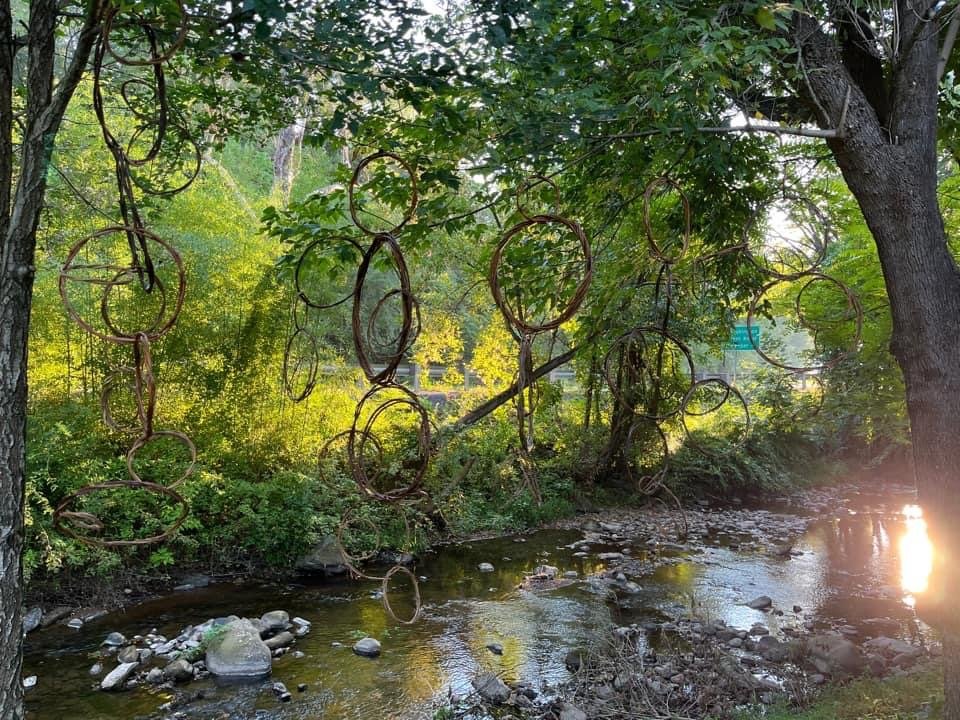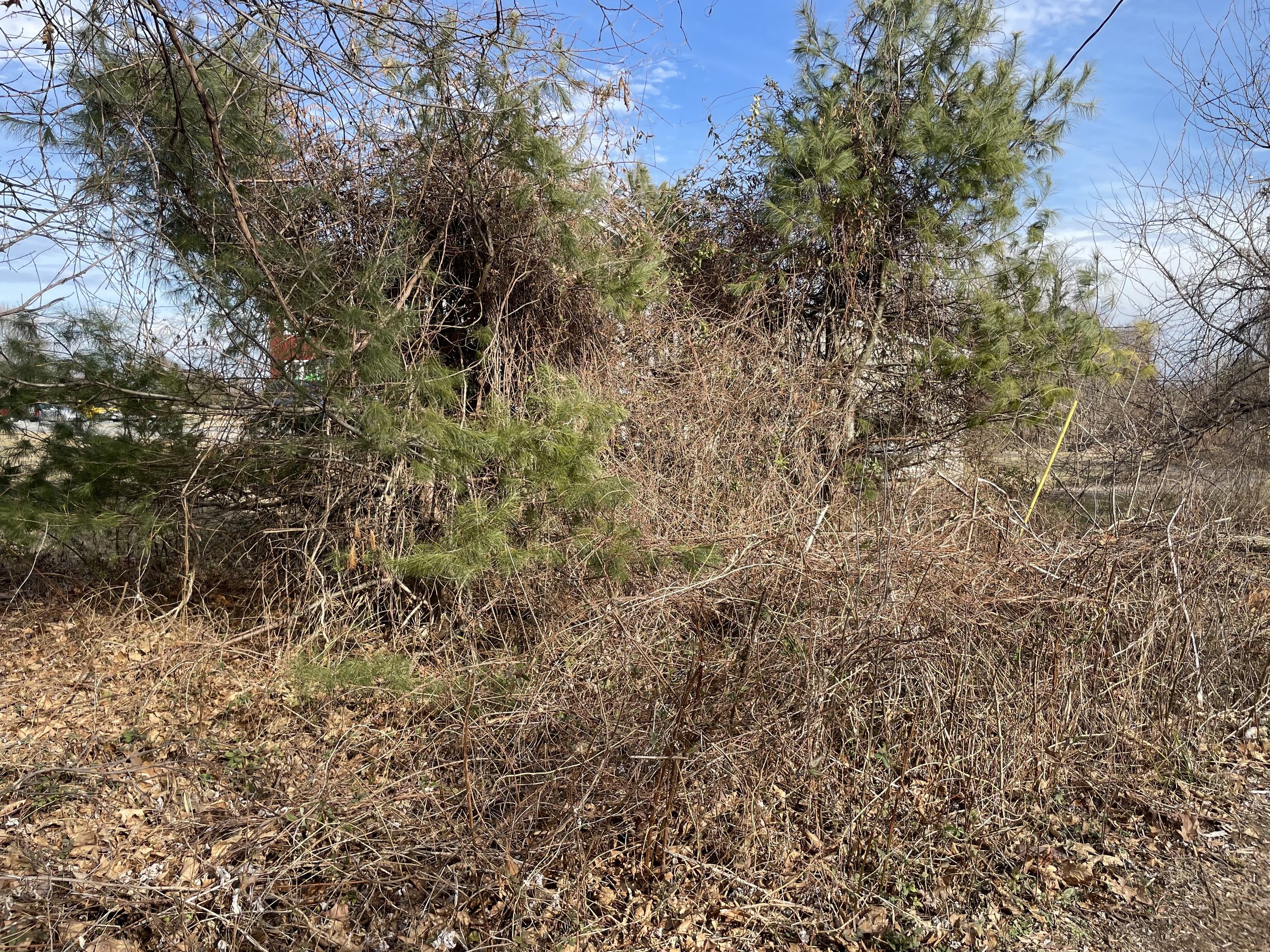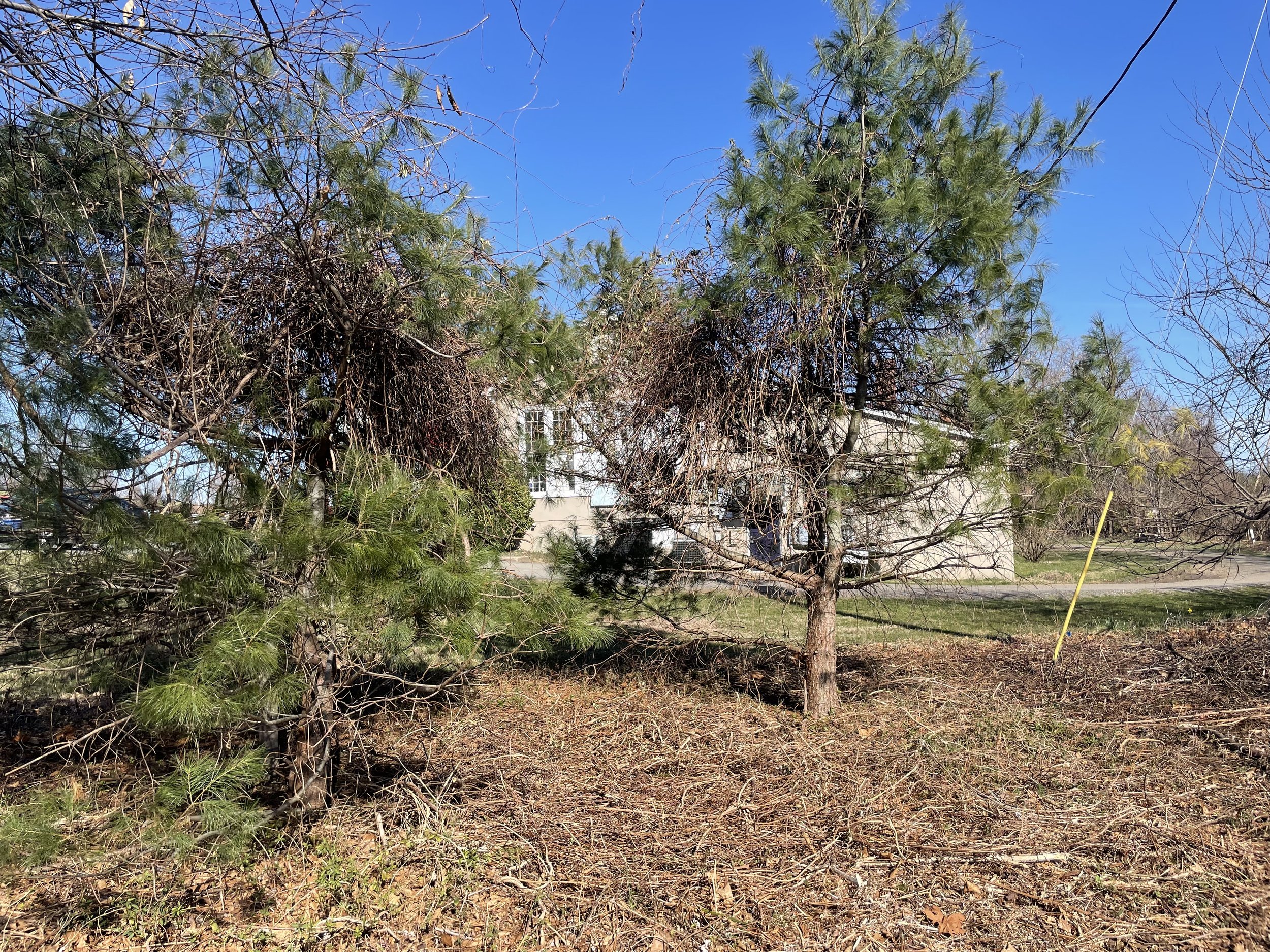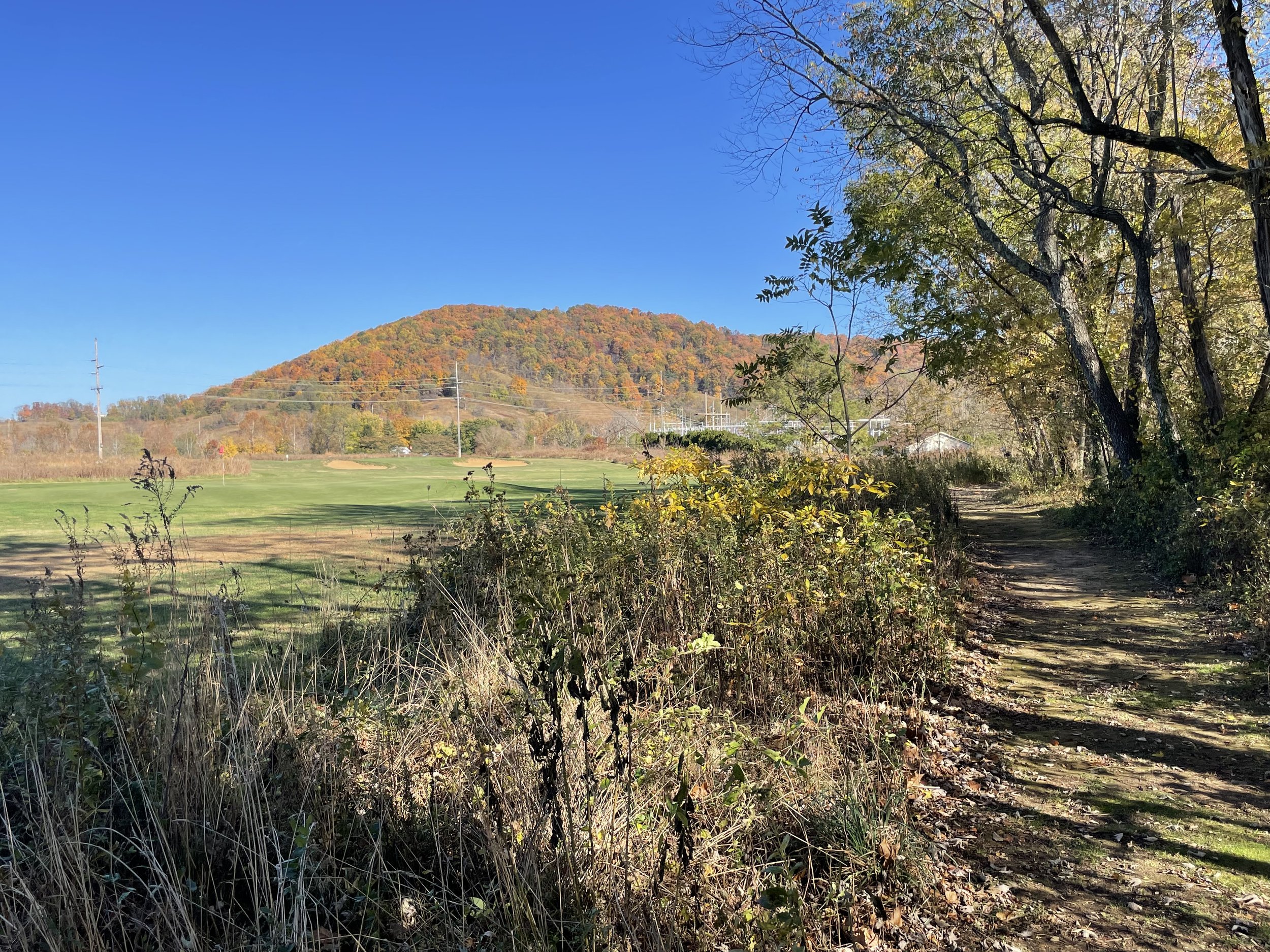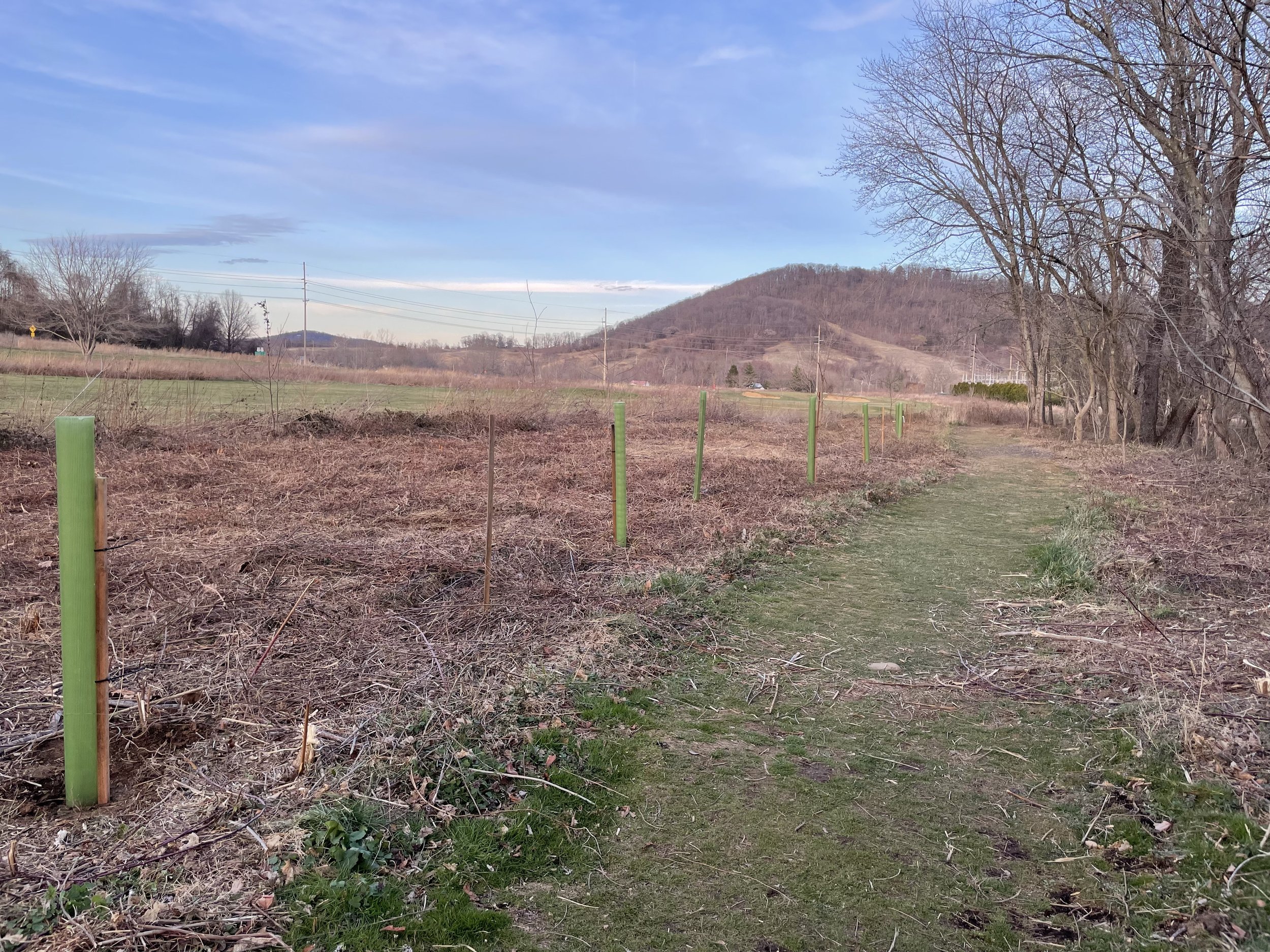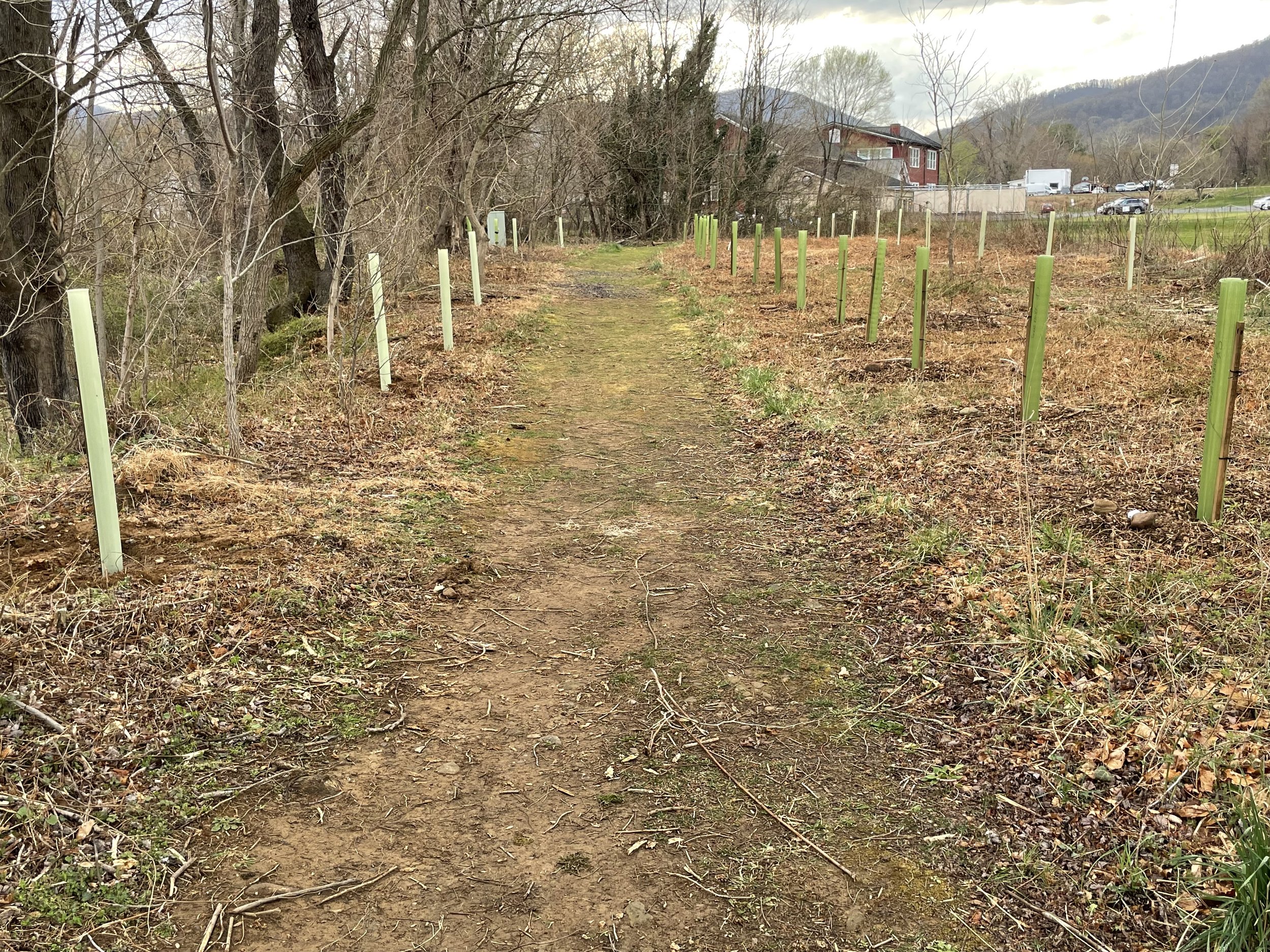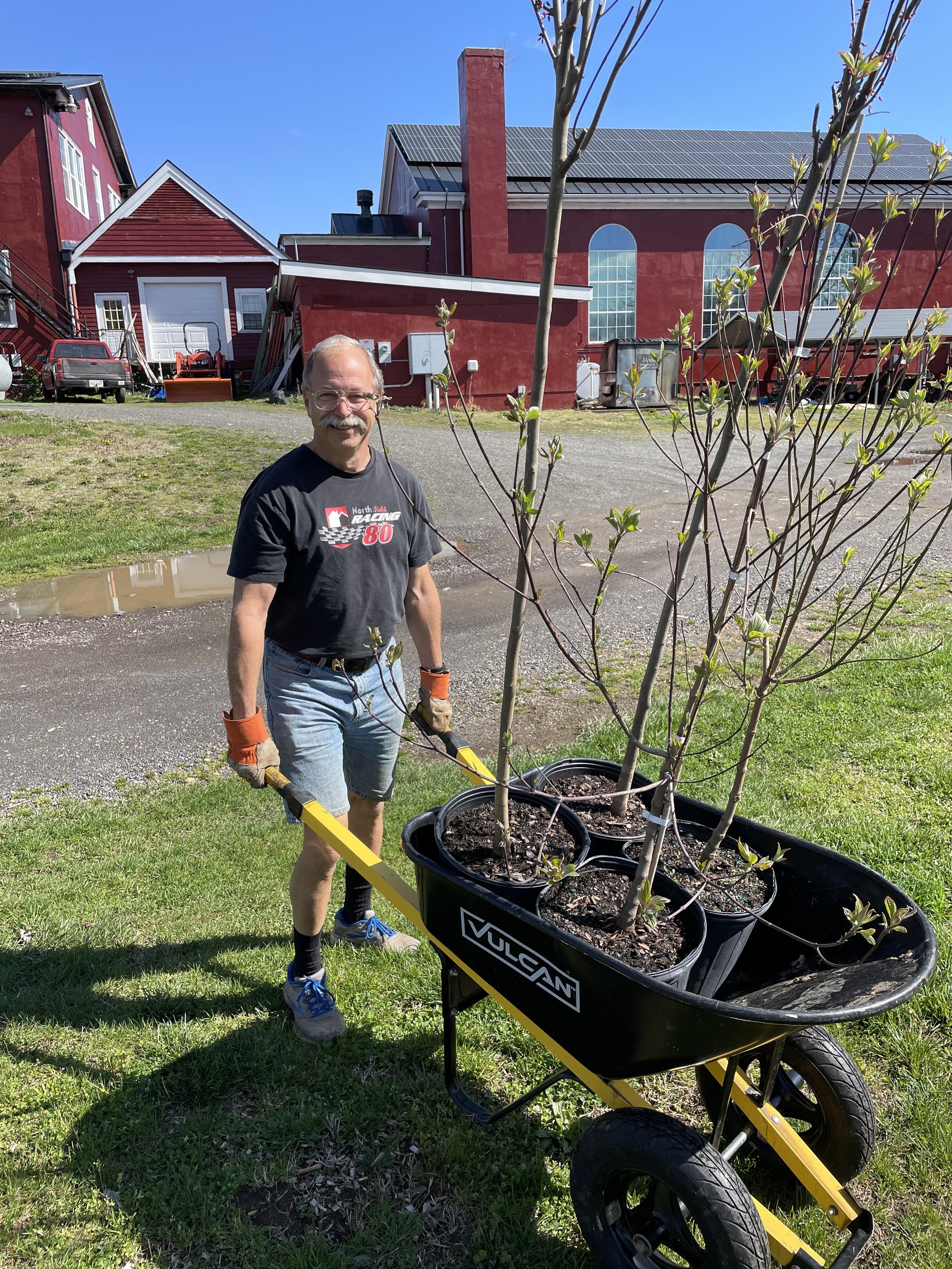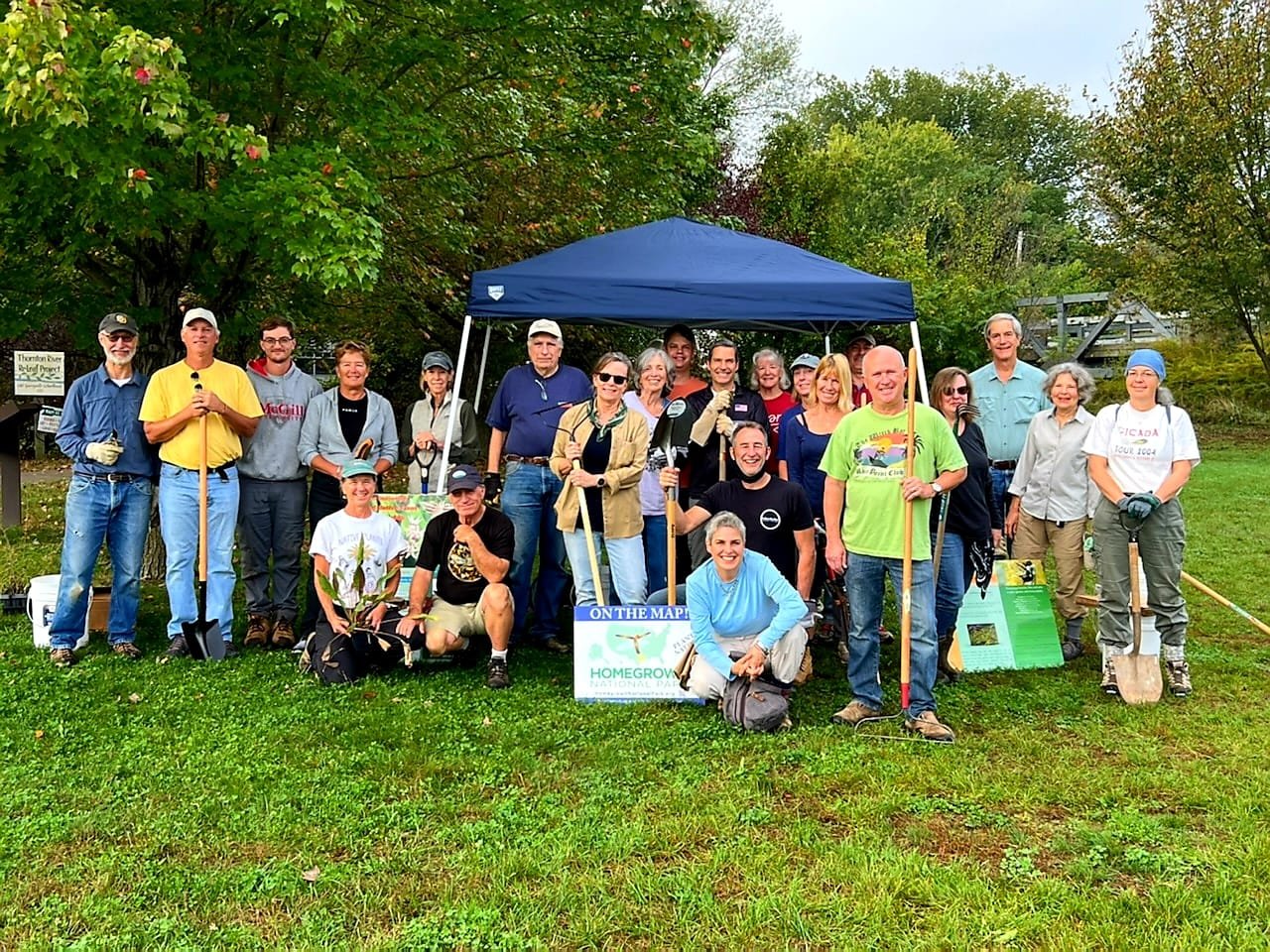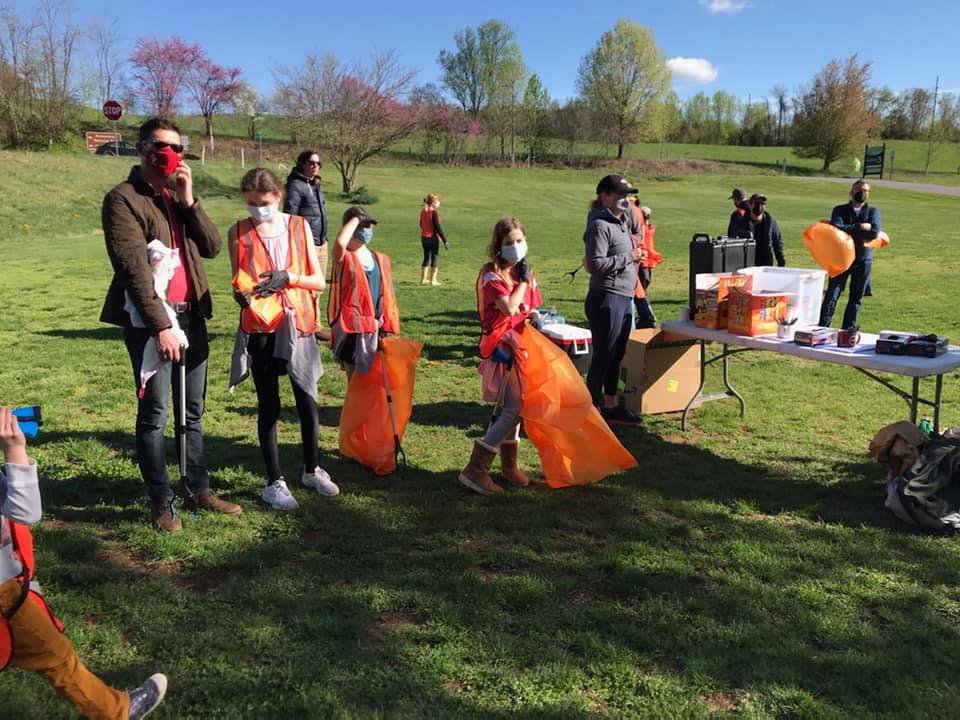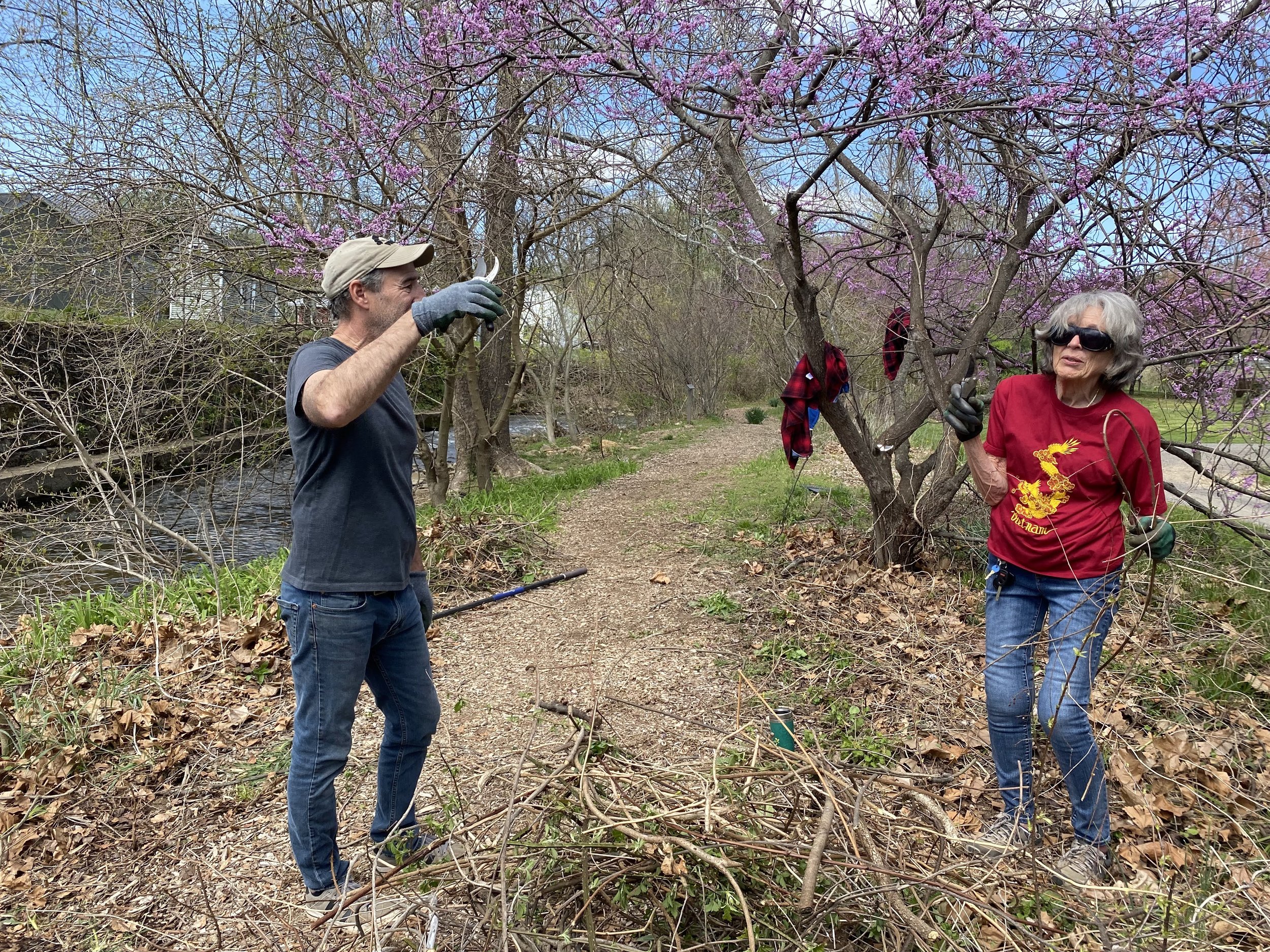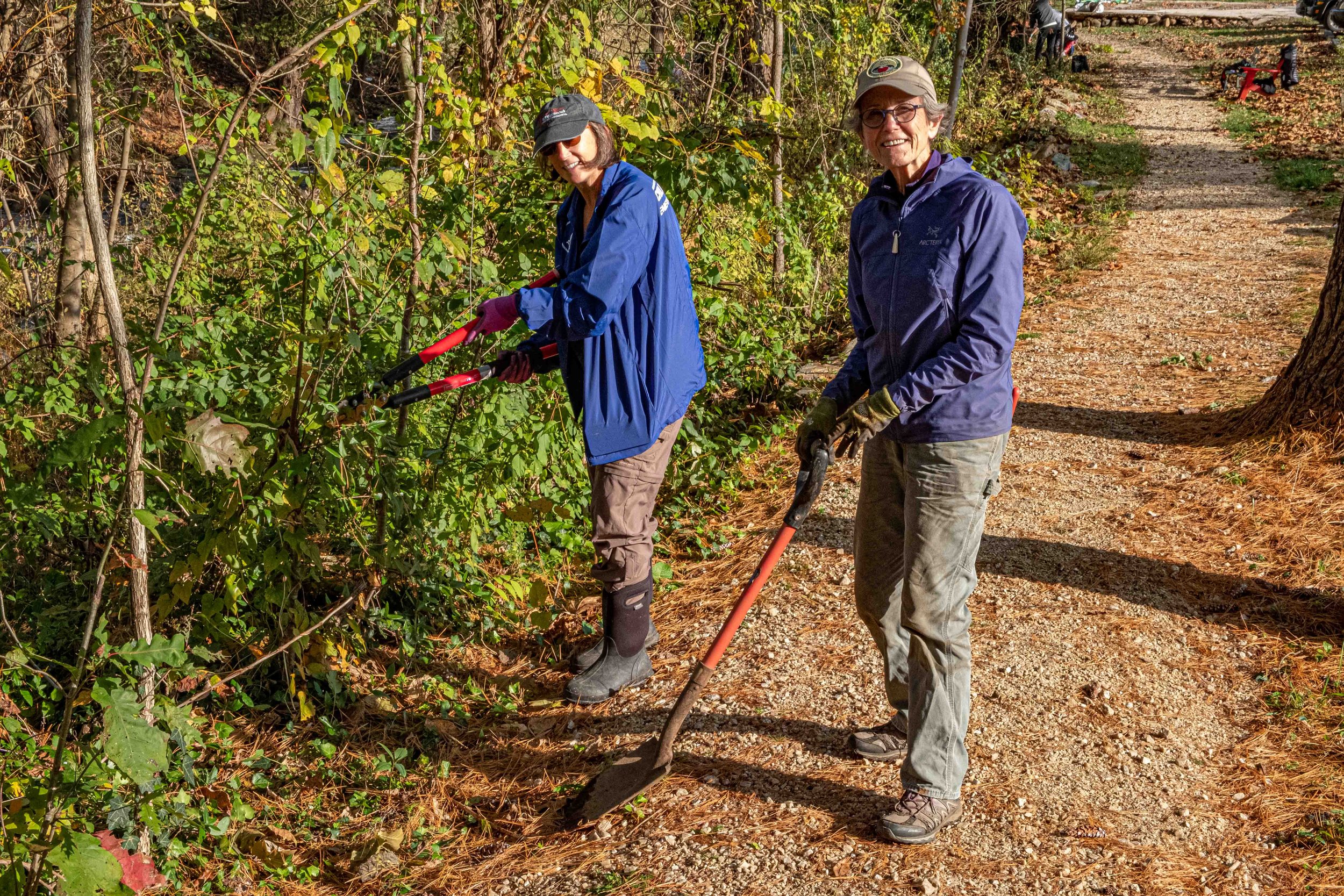Welcome to the Sperryville Trail Network! This beautiful 1.5 mile trail meanders through the village of Sperryville, following the Thornton River and stretching into forests and fields with wide views of our valley and mountains. On your journey, you will see unique local businesses, several e natural environments, and curiosities that are sure to delight.
Grab a locally made beverage or meal, explore art galleries and shops, and revel in the views of this remarkable Rappahannock County. We are delighted to welcome you!
Finding Your Way
Vision for the Trail
The Sperryville Trail Network was created to bring the community together in this beautiful part of the world. It aims to inspire a sense of connectedness where residents and visitors of all ages can enjoy the unlocked natural surroundings of the Thornton River and its watershed. The Trail also serves as a living demonstration of stewardship and conservation of the Thornton River and its riparian habitat. Perhaps most importantly, the trail provides safe walking access for residents and visitors to Sperryville’s many amenities.
History of the Trail
The Sperryville Trail Network initiative is sponsored by the Sperryville Community Alliance (SCA) and grows through input by the community . Thanks to the generosity of private landowners and the hard work of dedicated volunteers and partners, the trail now serves as a year-round public asset open to the entire community, connecting various business and residential districts within Sperryville including Main Street, the Old Schoolhouse and the River District. The first 1.25 miles of trail was completed between 2019 and 2022.
Outdoor Education
RLEP Education Committee (formerly RappFLOW) hosts annual Watershed Education Field Days for area schools that feature the Trail and teach about stream ecology, promote good stewardship, and foster an understanding of human impact in our watersheds.
Local Citizen Scientists with the Old Rag Master Naturalists and RLEP monitor stream water quality using biological and chemical testing and enter data into official State databases.
The Northern Piedmont Community Foundation’s Richard Lykes Rappahannock Community Fund recently awarded the SCA a $5,000 grant for directional and educational signage along the trail network.
In the future the SCA will seek funding for further educational amenities, including an outdoor classroom that will serve local schools and groups eager to educate about the natural world around them.
The Arts
In 2022, the Rappahannock Association for Arts and Community (RAAC) launched it’s Ephemeral Art Program. RAAC invited local artists to submit proposals for temporary art installations constructed with natural materials to be placed along the trail. The three winning installations were assembled on site and remained on display for several months. Future such competitions will likely bring additional ephemeral arts to the trail.
Invasive Plant Management
The SCA has identified over forty species of invasive plants along the trail network. Read about the challenge of invasives along the trail and how the SCA plans to tackle them here: Invasive Species Management Plan.
Protecting Habitat
In 2022 and 2023, volunteers have planted dozens of native trees along the trail. Many more will be planted in the future, along with understory shrubs and other flora. But before this takes place – and periodically into the future – the custodians of the trail must remove invasive plants that have long choked much of this valuable riparian buffer.
With support from the Piedmont Environmental Council, the SCA secured some $15,008 from the Virginia Department of Forestry to remove invasive vines and other plants along the Thornton River. Throughout the Spring of 2023, a licensed contractor will be performing extensive invasive plant removal, in accordance with guidelines laid out in this study.
Community members and groups who use and love the trail participate in invasive species and trash removal volunteer work days twice a year; once in the spring and once in the fall. If you have a passion for pulling weeds, chopping vines, or digging holes for new trees and shrubs, we need you! Please contact the Rappahannock League for Environmental Protection, our partner in rehabilitating the trail, at info@rlep.org.
Pets and Respecting Wildlife
Take only pictures, leave only footprints.
Do not stray from the trail.
Do not disturb animals encountered on the trail or surrounding habitat.
Pets must be on leash and stay on trail. Owners must clean and dispose of pet waste.
Report any wildlife issues to Rappahannock County Sheriff’s Office at 540-675-5300
The Future of the Trail
In November 2022, the Sperryville Community Alliance completed an extensive study on how to improve and expand the network of walking trails in Sperryville. This study was conducted by Racey Engineering, with a generous grant from the Krebser Fund for Rappahannock County Conservation. This study provides guidance to SCA and the Sperryville Trail Advisory Committee on how to maintain and restore existing trail segments. In addition, it outlines potential trail expansion opportunities, and suggests some additional amenities that could be created along the trail to improve the recreational and educational potential of the trail.
Read the Sperryville Trail Study.
Thank you to all of our generous land owners, partners and volunteers!
Trail Property Owners
Before & After
Cheri Woodard Realty
Hopkins Ordinary Bed Bed Breakfast Aleworks
Mt Vernon Farm
Mike Sands and Betsy Dietel
Partners
PATH Foundation
Piedmont Environmental Council
Virginia Department of Forestry
Northern Piedmont Community Foundation
Richard Lykes Rappahannock Community Fund
Friends of the Rappahannock
Master Gardeners of Fauquier and Rappahannock
Rappahannock Trails Coalition
Rappahannock League for Environmental Protection (RLEP)
Krebser Fund
Old Rag Master Naturalists
Rappahannock County Garden Club
Rappahannock Association for Arts and Community
HOW CAN YOU BE INVOLVED?
BE A VOLUNTEER: Join the call to restore native vegetation, remove non-native invasive plants, and maintain the trail.
BE A PARTNER: Offer letters of support on grant proposals, online, in newspapers, with friends and neighbors. Provide financial support to construct, restore, maintain and improve amenities (such as seating, signage etc.) along the trail. We are looking for both foundational & individual support!
MAKE A DONATION: The Alliance continues to enhance and manage the network of trails with your support. Please consider a tax-deductible contribution via www.sperryfest.org
We would love to hear from you! Email info@sperryfest.org
Frequently Asked Questions (FAQs)
→Who can use the trail?
Everyone! The Sperryville Trail Network is open to all members of the public who agree to safely and respectfully enjoy the private lands over which the trail spans.→Are pets allowed?
Well behaved dogs on leashes are welcome.→What are the trail hours?
Dawn to dusk→Who do I call if I see an issue?
If you identify a concern on the trail, please email trails@sperryfest.org→How can I donate to support the trail?
We are so grateful that you asked! Donate todayHIstory & Background:
The Sperryville Nature Trail initiative was conceived of and supported by the Sperryville Community Alliance (SCA) and prioritized via community input meetings beginning in 2018.
Today the trail connects much of the village: from River District to Main Street and out to Eldon Farm, its network highlights our natural resources while bringing a much needed amenity to our residents and guests.
On November 18, 2022, the Sperryville Community Alliance completed an extensive study to enhance the network of walking trails in Sperryville. The Sperryville Trail Study was conducted by the Racey Engineering with a generous grant from the Krebser Fund for Rappahannock County Conservation.
Further, the SCA, in partnership with Wetland Studies and Solutions, Inc., have generated a report for invasive species management. Read the Invasive Species Management Plan.



